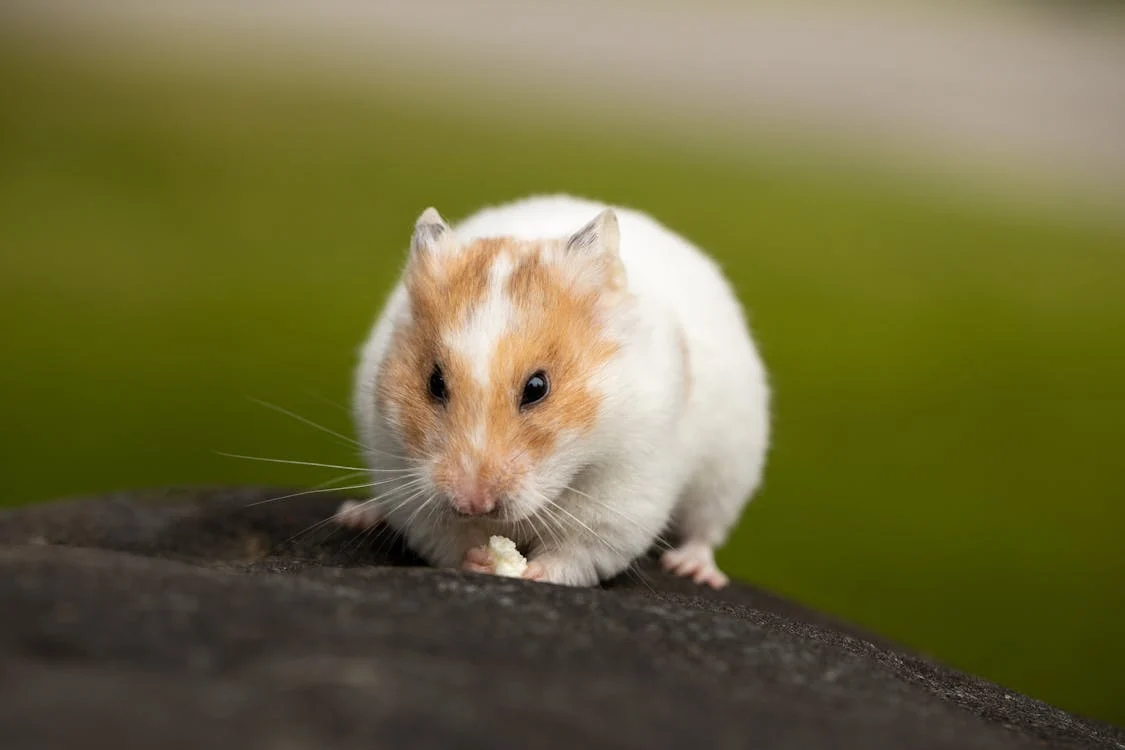Losing a beloved pet is never easy. Hamsters, despite their small size, can hold a big place in our hearts, bringing joy and companionship with their playful antics and curious personalities. When a hamster reaches the end of its natural lifespan or becomes terminally ill, making the decision to euthanize can be incredibly difficult but ultimately an act of love and compassion. This article explores safe and humane ways to say goodbye to your hamster, ensuring their final moments are filled with comfort and peace.
Understanding When Euthanasia Might Be Necessary
Hamsters typically live for 1.5 to 2 years, though some can live even longer with proper care. As your hamster ages, you might notice signs that their quality of life is declining. Here are some indicators that euthanasia might be the most humane option:
- Loss of Appetite and Weight Loss: A healthy hamster will eagerly devour its food. If your hamster consistently refuses food or shows a significant decrease in appetite, it could be a sign of pain, internal issues, or an underlying illness. Weight loss often accompanies a loss of appetite.
- Listlessness and Lethargy: Hamsters are naturally curious and active creatures, especially at night. If your hamster seems uninterested in exploring their cage, spends most of the time sleeping, or appears weak and sluggish, it could be a sign of suffering.
- Difficulty Moving or Maintaining Balance: As hamsters age, they might become less coordinated. However, if your hamster struggles to walk, climb, or maintain balance, it could indicate pain or a neurological issue impacting their quality of life.
- Signs of Pain: Hamsters are good at hiding pain, but some signs might indicate they’re suffering. These include teeth grinding, vocalizations like squeaking or hissing when touched, hunched posture, or labored breathing.
- Wet Tail or Other Serious Illnesses: Wet tail is a potentially fatal bacterial infection in hamsters. Other serious illnesses can cause significant discomfort and may not be treatable.
Consulting a Veterinarian is Key
If you notice any of these signs in your hamster, it’s crucial to consult a veterinarian. They can perform a thorough examination, diagnose the underlying issue, and discuss your options. In some cases, with proper treatment and pain management, your hamster’s quality of life can be improved. However, the vet might also determine that humane euthanasia is the most compassionate course of action.

Options for Humane Euthanasia
There are two main options for ensuring your hamster passes away peacefully:
1. Euthanasia by a Veterinarian:
This is the safest and most recommended option. Veterinarians have the expertise and medications to perform euthanasia humanely and painlessly. The process typically involves administering an anesthetic injection to render the hamster unconscious, followed by a second injection that gently stops the heart. This entire process happens very quickly and without any pain or suffering for your hamster.
Saying goodbye at the vet’s office can be emotionally challenging, but most veterinary clinics understand the gravity of the situation. They will create a calm and loving environment for you to spend some quiet moments with your hamster before the procedure.
2. At-Home Euthanasia (with Veterinary Guidance):
In some cases, if travel to the vet is particularly stressful for your hamster, at-home euthanasia might be an option. However, this should only be considered if your veterinarian advises and facilitates the process. The vet will provide specific medication and clear instructions on its administration. It’s crucial to follow these instructions precisely to ensure a peaceful passing for your hamster.
Importance of Comfort and Care During End-of-Life
Even if you’re considering euthanasia, it’s important to prioritize your hamster’s comfort and well-being during their final days. Here are some ways to make this difficult time as peaceful as possible for them:
- Provide a Familiar and Comfortable Environment: Keep your hamster in their usual cage, with familiar bedding and objects. This will help them feel safe and secure.
- Offer Soft Bedding and Hiding Spots: Ensure their cage has plenty of soft bedding for them to rest comfortably. Provide familiar hiding spots where they can retreat if they feel overwhelmed.
- Maintain a Clean Cage: Regularly clean the cage to minimize stress and discomfort.
- Offer Favorite Treats: If your hamster is still eating, tempt them with their favorite treats.
- Spend Quality Time: Spend quiet moments with your hamster, offering gentle petting and a soothing presence. Talk to them softly and let them know they are loved.
Coping with Loss
Losing a pet, no matter how small, can be a significant emotional experience. Allow yourself to grieve and feel your emotions. Here are some resources that can help you cope with pet loss:
- Pet Bereavement Hotlines: Many veterinary clinics and animal shelters offer pet bereavement hotlines. These hotlines are staffed by trained professionals who can provide support and listen to you as you grieve.
- Support Groups: Connecting with others who understand the pain of losing a pet can be incredibly helpful. Online forums and local pet loss support groups can offer a space to share your feelings and find comfort from others who have experienced similar loss.
- Memories and Tributes: Creating a memory box or photo album filled with pictures and keepsakes of your hamster can be a way to cherish the happy times you shared. Writing a tribute or poem expressing your love for your furry friend can also be a form of healing.
Conclusion
Making the decision to euthanize a pet is never easy. However, by prioritizing your hamster’s well-being and comfort throughout the process, you can ensure their passing is peaceful and filled with love. Remember, consulting a veterinarian is crucial for guidance and support during this difficult time. They can help you determine the most humane course of action and ensure your hamster’s final moments are filled with dignity and respect.
The love and care you provide your hamster throughout their life, especially during their final days, is a true testament to the special bond you share.

